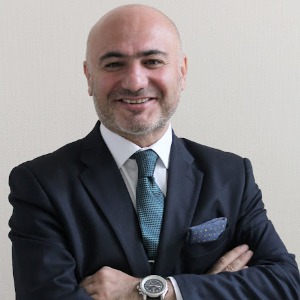Title : Myocardial revascularization and analysis of endpoints in patients with diabetes mellitus in combination with acute and chronic forms of CHD
Abstract:
The aim of this study was to analyze the features of myocardial revascularization in patients with acute and chronic forms of CHD in combination with diabetes mellitus and to assess complications after a year of observation.
Materials and methods. A prospective comparative clinical study included 202 patients of both sexes with acute and chronic forms of CHD. Depending on the glycemic status and form of CHD, patients were divided into four groups: acute forms of CHD and T2DM; acute forms of CHD without T2DM; chronic forms of CHD and T2DM; chronic forms of CHD without type 2 diabetes. Depending on the clinical condition and the results of coronary angiography, patients underwent various types of myocardial revascularization: balloon angioplasty without stenting, stenting, coronary bypass grafting, stenting + coronary bypass grafting. One year after discharge, all patients were called to assess complications and endpoints, which included the following incidents: recurrent myocardial infarction, acute cerebrovascular accident, readmission, revascularization, and death. An assessment of the total indicator of endpoints was carried out.
Results. Up to 80% of patients with acute and chronic forms of CHD, regardless of glycemic status, underwent revascularization, mainly stenting. It should be noted that the frequency of stenting among persons without DM with acute and chronic forms of CHD was significantly higher compared with patients with diabetes. At the same time, the absolute number of patients with coronary artery bypass grafting, including in combination with stenting, was higher in the diabetic groups. In groups without diabetes, the number of patients with one stent was 2-2.5 times higher compared to groups with diabetes (acute forms of CHD, p=0.041 and chronic forms of CAD, p=0.017). The groups did not differ in the frequency of implantation of two or more stents.
Within 1 year after discharge, there are more hospitalizations and reinterventions among people with acute and chronic forms of CHD and diabetes. The number of non-fatal and fatal complications did not differ between the groups, although the absolute numbers of these indicators were higher in patients with diabetes. However, the total endpoints in people with DM, regardless of the form of CHD, were twice as high as in control groups (p<0.001).
Conclusion. Thus, the majority of patients with acute and chronic forms of CHD, regardless of glycemic status, underwent myocardial revascularization. In patients without DM, stenting prevailed, most often of one coronary artery. At the same time, coronary bypass grafting, as well as a combination of these two procedures, was performed in diabetic patients along with stenting. After a year of observation, the number of complications in diabetic patients was 2 times higher than in patients without diabetes, which emphasizes the importance of secondary prevention, including complex drug correction.
Keywords: myocardial revascularization, endpoints, ischemic heart disease, diabetes mellitus.



